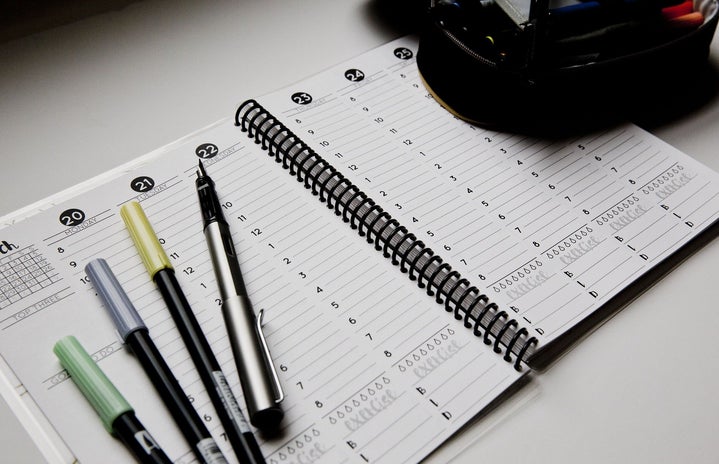How did you feel when you arrived?
Mary
I remember landing in Melbourne, Australia. I sat in the window seat, which in my opinion is already the best for scoping everything out. Next to me was a girl who was visiting Australians who had studied abroad at her school in the United States. We were both looking out the window when the plane finally landed. I can remember her saying “I don’t know what I was expecting, but it wasn’t this,” referring to the dry landscape facing away from the city. It wasn’t red, or filled with kangaroos, nor did we see the city. While we were unimpressed what our 16 hour flight from Los Angeles had led to, I found it better to not know what to expect, as that’s all part of the adventure.
I got off the plane and it was incredibly humid. Mainly because it was mid-summer down under and my body was used to a western New-York winter. Arriving in the morning was easier on jet lag because I forced my body to stay up the rest of the day to get adjusted. Yes, I walked through the city half asleep, but it was the easiest way to get used to the 16 hour time change from New York.
Marlon
Like Mary, I had a 16 hour flight to China, in which I got probably 10 minutes of sleep total. Upon landing, my head felt like it was going to explode, due to my inability to effectively pop my ears. I couldn’t hear anything, and, after getting through customs and meeting my program, spent the next hour profusely apologizing to everybody for screaming in their ear (more than usual, anyways). When we finally left the airport and I walked through the exit, my throat was immediately besieged by the forces of industrialization. “I’m going to die here,” I thought. They shepherded us to dinner, and I spent the rest of the evening 80% deaf, being choked out by the air itself, and feeling like Marlon in Finding Nemo after he swims from the reef and looks around.
It was a rough time, is what I’m saying. But I knew it would get better. And it didn’t just get better — my time in China became greater than my wildest dreams.
Should you pursue a relationship while abroad?
Mary
When it comes to relationships abroad, I would advise anyone to be careful. You are abroad for a reason, not just to study, but to experience a new culture. This alone will push you to explore outside your comfort zone. You will make many new friends and meet many new people, but don’t take this so far as to pursue a relationship. Just remember that studying abroad is, unfortunately, only temporary. You will eventually have to face reality and move back home, thousands of miles and a few time zones away.
I’m opposed to it because I wanted to be able to experience all that a study abroad experience had to offer, I didn’t want worry about how much drama it would caused. I also wanted to ensure that the memories I made were primarily good ones, and that didn’t include a significant other that would cause me to block out memories. I also find it too much work after completing study abroad. Once you return home you are now in a (very) long distance relationship.
If you are the type of person who wants to make an international relationship work, my advice would be to try and still do as many fun & social things as you can with other people so that your memories are not with one person. In addition, don’t get lost in the relationship that you forget to find your purpose while abroad – just remember the reason you went there.
Marlon
I disagree with Mary, here. Although I understand her perspective, I think having a relationship while abroad can be a great choice, and here’s why:
-A relationship can be many things, and can take many forms. Having a relationship doesn’t have to mean you are heavily committed to each other, spend every moment together, and shut out the rest of your experiences. It can be an open relationship, for example, or can even just be a very casual committed relationship. If you can have a “summer fling” domestically, you can definitely have a “study abroad fling”.
-Getting into a relationship while abroad can enhance your experience there in ways that simply having friends can’t. Getting to know somebody from a different culture on an intimate level is an extremely rare opportunity, and that shouldn’t be wasted. Who hasn’t fantasized about kissing someone you care about at the highest point in Beijing, overlooking the city proper, or planting a kiss on your partner in front of Big Ben so passionate that the even the guards can’t help but smile? These are memories that, for many of us, can only happen once. Don’t waste it!
-If you haven’t been able to tell by now, I had a fling while I was in China. It was with this beautiful Brazilian girls, and she made my time there really special. We explored Beijing together, and, because she was there for 2 years prior, she showed me places that only locals know about. She also introduced me to her Brazilian friends, who I hung out with all the time, and subsequently introduced me to French, Greek, and African people who I also quickly befriended. My relationship helped me to grow, to go outside of my comfort zone, and I was all the better for it.
What was is like communicating with everyone back home?
Mary
Trying to communicate with friends and family back home was harder than it sounds. I bought an Australian sim card, downloaded What’sApp, tried to stay up to date with my email and social media accounts, but no matter how hard I tried, I was still out of touch. Once again I have the time difference to thank for this. Melbourne is 16 hours ahead of New York until daylight savings begins, and then it drops down to 14 hours. I found it easiest to message or talk to people either early in the morning or late at night. Eventually I got used to converting the time change in my head. A “normal” day for me would occur during the late afternoon to early morning for people back home. 6am/4pm wake up, 7am/5pm walk to school, 8pm/6pm start class, 12pm/10pm lunch/ USA falls asleep, 4pm-6pm/2am-4am typically when I would leave uni to go home, 7pm/5am dinner, 9pm/7am people back home start to wake up
Even returning home, I’ve run into the same issue with trying to stay in touch with friends I’ve made abroad. By the time I wake up, the other side of the world is asleep, similarly I have a small time frame in the evening when they wake up and before I fall asleep.
The two apps I found work best are Snapchat and Facebook Messenger. Facebook messenger was the easiest form of messaging because it’s all through the internet and doesn’t require a data plan or international minutes, both huge pluses. Snapchat allows you to send photos and videos in an instant and you can look at them on your own time within 24 hours. For me this was and still is the easiest way of communication because there isn’t a whole lot of time to communicate through other methods.
Marlon
My experience trying to communicate with home was difficult, but, to my surprise, it actually wasn’t the time difference that was the cause. China is 12 hour (13 depending on daylight savings time) time difference from the east coast, which was great, because I was able to talk to people in the mornings and evenings. The problem was the Great Firewall of China. Basically, for myriad reasons, the Chinese government blocks EVERYTHING. Facebook, Snapchat, Twitter, Google, The New York Times..everything. You need a VPN to bypass the block and access anything (which is illegal but they didn’t catch me did they!), and using it slows the internet way down. Doing basic internet functions in China is an exercise in torture. This made doing things like posting to Snapchat overly tedious, and it became difficult to communicate with friends. The best way was to use WeChat, which Chinese people use for everything, and therefore is not blocked. But in the US, most people haven’t even heard of the app, which meant I only communicated that way with people who I asked to get the app before I left. On the whole, though, I did not have too many problems communicating with the people I cared most about communicating with.

